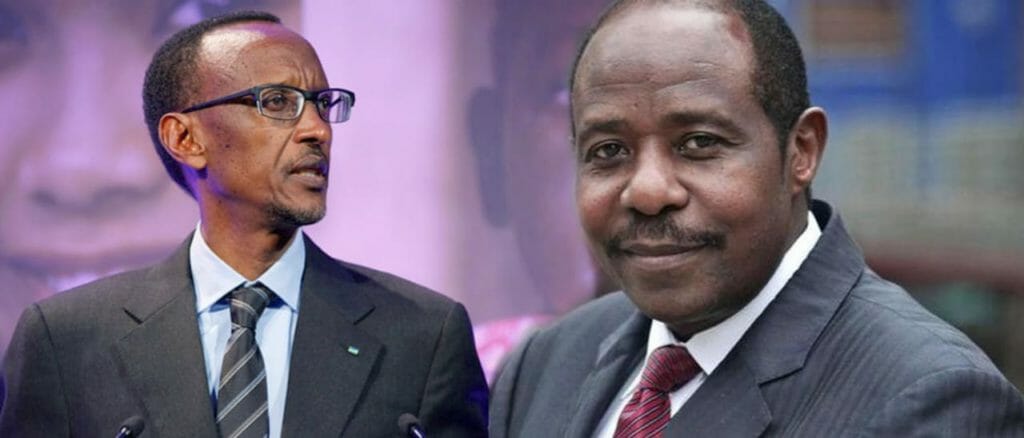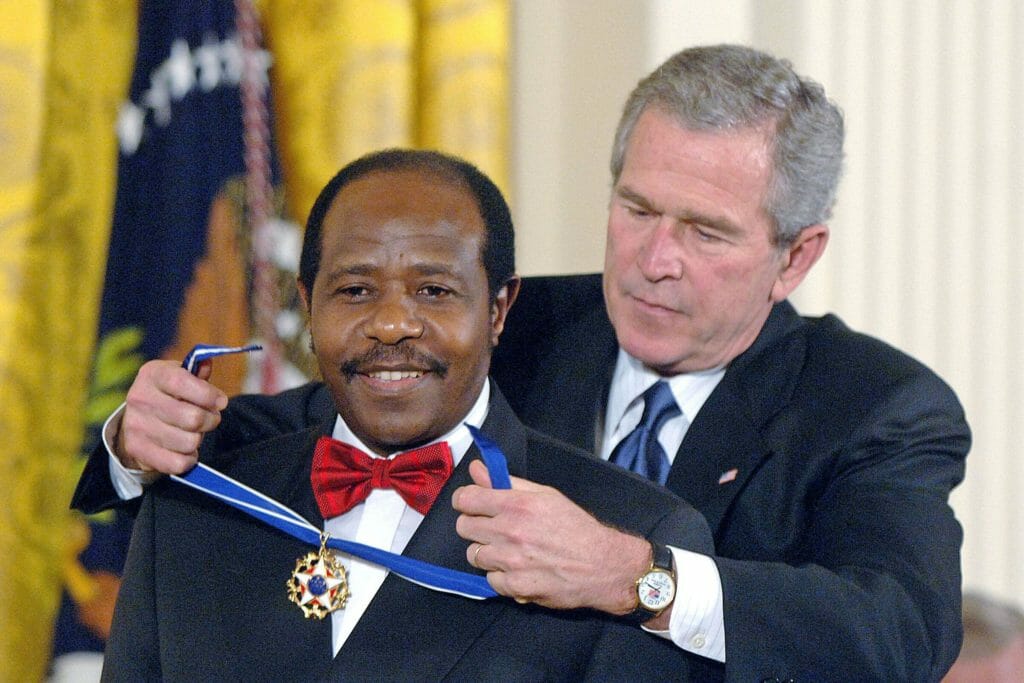Rwanda: A Tale of Two Pauls
BY STEVE OGAH

It is Charles Dickens’ classic novel, A Tale of Two Cities, which provided the backdrop for this essay’s title. And that is where it begins and ends. Paul Rusesabagina has been handed a 25-year prison sentence by a court in Kigali, Rwanda. But that is not the end of the matter. Opinion is divided between supporters of the government of Paul Kagame of Rwanda, and those on the other side of the divide. By this characterization, I mean his critics and those who are merely neutral observers of political and economic incidents that are unfolding in a land forever scarred by the traumatic history of its last genocide. The recent sentencing has put the hero of the story told around The Hotel Rwanda movie back in our faces. Paul Rusesabagina is perhaps, in some ways, a hero of a tragic episode in his country, the continent and in human history. One may never be absolute about this.

Paul rose to national and international limelight when he shielded over a thousand guests of mixed tribes in Hotel des Mille Collines where he worked as a manager during the Rwandan killing orgy of 1994. His narrative of that experience has since been cinematized to mixed reactions. But Paul remains a hero in the eyes of many in the Western world. To this end, he has since gone on to receive the United States’ Presidential Medal of Freedom, an award bestowed on him by former president George Bush in 1995. Ordinarily, one would be tempted to think that he would be a natural goodwill ambassador for the new government that took roots in Kigali after the genocide. But that wasn’t the case.
Paul Kagame soon had a fierce critic in Paul Rusesabagina. The two Pauls have never concurred on how to return Rwanda to its former ways, so it now appears. As a result of Rusesabagina’s polarizing positions, he pitched tent with MRCD, an anti-government collective which encounters less encumbrances abroad. With Kagame finding Rusesabagina increasingly upsetting, the government seemingly orchestrated his return to Rwanda, in controversial circumstances. Pranking a government critic is not one of the best ways to silent one. On 31, August last year, Rusesabagina’s plane which he thought was heading for Burundi from Dubai, landed in Rwanda. That was the day his troubles in court began. Paul Kagame was perhaps excited to have Paul Rusesabagina in his own lair. Rusesabagina was charged with many offences, among which was terrorism.
With the conclusion of a tortuous trial, questions have risen as to the fairness or otherwise of the whole legal process. Yolande Makolo, a spokesperson for the Rwandan government, believes that Rusesabagina was given a fair trial, while Rusesabagina and his supporters are of the view that the trial was full of legal violations which now raises questions about the fate that was meted to Rusesabagina. The new concerns about the manner in which Rusesabagina arrived back in Rwanda and issues around the legality or illegality of his ordeals brings one back to the travails of the late Nigerian writer and environmentalist, Ken Saro-Wiwa. The Ogoni political and economic rights advocate, was hanged to death in Port Harcourt prison on 10th November, 1995 by the military regime of late General Sanni Abacha.
Wiwa’s legal team, led by late legal luminary Chief Gani Fawehinmi, a senior advocate of the bar, soon fell into a state of hysterical frustration and argued brilliantly in a Tell magazine of November 1995 that: “the whole trial was riddled with glaring biases, violent violations of fundamental rights of human dignity and fair hearing and breached all known municipal and international legal norms and legislations.” He had already withdrawn from Wiwa’s defence at this time. Ken Saro-Wiwa was then sent to the hangman at Port Harcourt prison in Rivers state.
The above seems to be the exact position now taken by Rusesabagina’s daughter, Carine Kanimba, his supporters and legal team. To this end, one must bring it to bear on all parties in this case that late justice Chukwudifu Oputa, of Nigeria’s Supreme court, has already remarked supremely well that: “justice is not a one-way traffic. It is not justice for the appellant only. Justice is not even only a two-way traffic. It is really a three-way traffic-justice for the appellant accused of a heinous crime of murder, justice for the victim, the murdered man, the deceased, ‘whose blood is crying to heaven for vengeance’ and finally justice for the society at large-the society whose social norms and values had been desecrated and broken by the criminal act complained of.” This was Justice Oputa speaking in 1985, but his eternal words still find relevance even till this day. Unless all parties in this case agree that a trifurcated justice has been served, we may not fully concur that Paul Rusesabagina was given a fair trial. The case now seems to be in the court of public opinions where it may finally be decided.
__________

Steve Ogah is a creative writer and author of Barack Obama’s Logic. He is active on LinkedIn.

